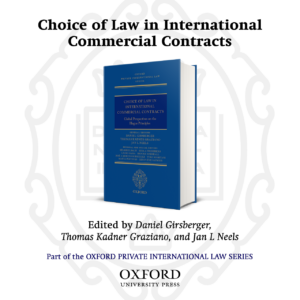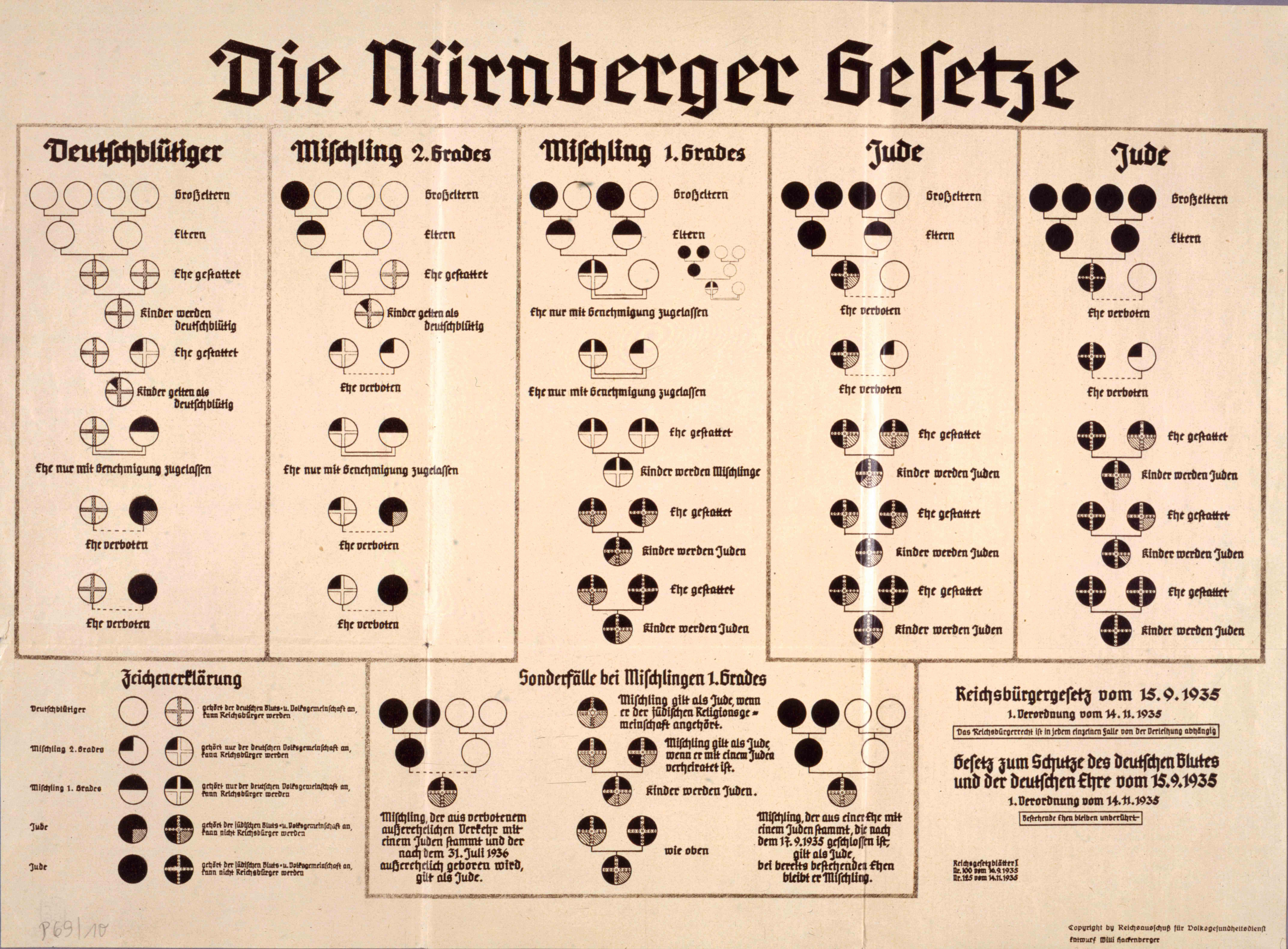The latest issue of the „Praxis des Internationalen Privat- und Verfahrensrechts (IPRax)“ features the following articles:
A. Dickinson: Realignment of the Planets – Brexit and European Private International Law
At 11pm (GMT) on 31 December 2020, the United Kingdom moved out of its orbit of the European Union’s legal system, with the end of the transition period in its Withdrawal Agreement and the conclusion of the new Trade and Cooperation Agreement. This article examines the impact of this realignment on private international law, for civil and commercial matters, within the legal systems of the UK, the EU and third countries with whom the UK and the EU had established relationships before their separation. It approaches that subject from three perspectives. First, in describing the rules that will now be applied by UK courts to situations connected to the remaining EU Member States. Secondly, by examining more briefly the significance for the EU and its Member States of the change in the UK’s status from Member State to third country. Thirdly, by considering the impact on the UK’s and the EU’s relationships with third countries, with particular reference to the 2007 Lugano Convention and Hague Choice of Court Convention. The principal focus will be on questions of jurisdiction, the recognition and enforcement of judgments and choice of law for contract and tort.
S. Zwirlein-Forschner: Road Tolls in Conflict of Laws and International Jurisdiction – a Cross-Border Journey between the European Regulations
Charging tolls for road use has recently undergone a renaissance in Europe – mainly for reasons of equivalence and climate protection. The payment of such road tolls can be organized either under public or under private law. If a person resident in Germany refuses to pay a toll which is subject to foreign private law, the toll creditor can sue the debtor for payment at its general place of jurisdiction in Germany. From the perspective of international private law, such claim for payment of a foreign toll raises a number of complex problems to be examined in this article.
T. Pfeiffer: Effects of adoption and succession laws in US-German cases – the example of Texas
The article discusses how adoption and succession laws are intertwined in cases of adoptions of German children by US-parents in post WW2-cases, when Germany still had a contract based system of adoptions. Addressing the laws of Texas as an example, the author demonstrates that, so far, the legal effects of these adoptions have not been analysed completely in the available case law and legal writing. In particular, the article sets forth that, in relation to adoption contracts, Texan conflicts law (like the law of other US States) refers to the law of the adoption state so that the doctrine of a so-called hidden renvoi is irrelevant. Furthermore, in this respect, the renvoi is a partial one only in these cases: Under Texan conflicts law, the reference to the laws of the adoption state is relevant only for the status of being adopted, not for the effects of adoption, e.g. the question to whom the adopted is related; the latter issue is governed by the law of the domicile of the child, which is identical to the adoptive parents’ domicile, at least if this is also the adoptive family’s domicile after the adoption.
Furthermore, the author discusses matters of succession and argues: According to the ECJ’s Mahnkopf decision, a right of inheritance of the adopted child in relation to the biological parents under the laws applicable to the effects of the adoption, as provided for in Texas, has to be characterised as a succession rule, at least if that law provides for a mere right of inheritance, whereas all legal family relations to the biological family are cut off. As a consequence, such a “nude” inheritance right cannot suffice as a basis of succession under German succession laws. Even if one saw that differently, Texan succession conflicts law, for the purpose of succession, would refer to the law of the domicile of the deceased for movables and to the law of the situs for real property. Additionally, even if the Texas right of inheritance in relation to the biological parents constituted a family relationship, this cannot serve as a basis for a compulsory share right.
W. Voß: Qualifying Direct Legal Claims and culpa in contrahendo under European Civil Procedure Law
Legal institutions at the interface between contract and tort, such as the culpa in contrahendo or direct claims arising out of contractual chains, typically elude a clear, uniform classification even within the liability system of substantive national law. Even more so, qualifying them adequately and predictably under European civil procedure law poses a challenge that the European Court of Justice (ECJ) has not yet resolved across the board. In two preliminary rulings, the ECJ now had the opportunity to sharpen the borderline between contractual and noncontractual disputes in the system of jurisdiction under the Brussels I bis Regulation, thus defining the scope of jurisdiction of the place of performance of a contractual obligation and, at the same time, of jurisdiction over consumer contracts. However, instead of ensuring legal clarity in this respect, the two decisions rendered by the ECJ further fragment the autonomous concept of contract under international civil procedural law.
C. Thomale: International jurisdiction for rights in rem in immovable property: co-ownership agreements
The CJEU decision reviewed in this case note, in its essence, concerns the scope of the international jurisdictional venue for immovable property under Art. 24 No. 1 Brussels Ia-Regulation with regard to co-ownership agreements. The note lays out the reasons given by the court. It then moves on to apply these reasons to the Austrian facts, from which the preliminary ruling originated. Finally, some rational weaknesses of the Court’s reasoning are pointed out while sketching out a new approach to determining the fundamental purpose of Art. 24 No. 1 Brussels Ia-Regulation.
F. Rieländer: Solving the riddle of “limping” legal parentage: “Pater est” presumption vs. Acknowledgment of paternity before birth
In its judgment of 5/5/2020, the Kammergericht Berlin (Higher Regional Court of Berlin) addressed one of the main outstanding issues of German private international law of filiation. When children are born out of wedlock, but within close temporal relation to a divorce, the competing connecting factors provided for in Art. 19 (1) EGBGB (Introductory Act to the German Civil Code) are apt to create mutually inconsistent results in respect of the allocation of legal parentage. While it is firmly established that parenthood of the (former) husband, assigned at the time of birth by force of law, takes priority over any subsequently established filiation by a voluntary act of recognition, the Kammergericht held that where legal parentage is simultaneously allocated to the husband by one of the alternatively applicable laws and to a third person by way of recognition of paternity before birth according to a competing law, the (domestic) law of the state of the child’s habitual residence takes precedence. Though the judgment is well argued, it remains to be seen whether the controversial line of reasoning submitted by the Kammergericht will stand up to a review by the Bundesgerichtshof (German Federal Court of Justice). Nonetheless, the decision arguably ought to be upheld in any event. In circumstances such as those in the instant case, where divorce proceedings had commenced, recognition of legal parentage by a third person with the consent of the child’s mother and her husband is to be treated as a contestation of paternity for the purposes of Art. 20 EGBGB. Thus, according to domestic law, which was applicable to the contestation of paternity since the child’s habitual residence was situated in Germany, any possible legal ties between the child and the foreign husband of its mother were eliminated by a recognition of parentage by a German citizen despite suspicions of misuse. All in all, the judgment demonstrates once again the need for a comprehensive reform of German private international law of filiation.
Mark Makowsky: The attribution of a specific asset to the heir in the European Succession Certificate
According to Art. 63 (2) lit. b and Art. 68 lit. l of the European Succession Regulation, the European Certificate of Succession (ECS) may be used to demonstrate the attribution of a specific asset to the heir and shall contain, if applicable, the list of assets for any given heir. In the case at hand the ECS, which was issued by the Austrian probate court and submitted to the German land registry, assigned land plot situated in Germany solely to one of the co-heirs. The Higher Regional Court of Munich found, that the ECS lacked the presumption of accuracy, because the applicable Austrian inheritance law provides for universal succession and does not stipulate an immediate separation and allocation of the estate. Contrary to the court’s reasoning, however, Austrian inheritance law does allow singular succession of a co-heir, if (1) the co-heirs agree on the distribution of the estate before the probate court orders the devolution of property and (2) the court’s devolution order refers to this agreement. The presumption of accuracy of the ECS with respect to the attribution of specific assets is therefore not excluded by legal reasons. In the specific case, however, the entry in the land register was not based on the ECS, but on the devolution order of the Austrian probate court, which does not include a reference to a previous agreement of the co-heirs on the distribution of the estate. As a consequence, the devolution order proves that the land plot has become joint property of the community of heirs and that the ECS is therefore inaccurate.
R. Hüßtege: Internet research versus expert opinion
German courts have to determine the applicable foreign law by virtue of their authority. The sources of knowledge they rely on are based on their discretionary powers. In most cases, however, their own internet research will not be sufficient to meet the high demands that discretion demands. As a general rule, courts will therefore continue to have to seek expert opinions from a national or foreign scientific institute in order to take sufficient account of legal practice abroad.
A.R. Markus: Cross-Border Attachment of Bank Accounts in Switzerland and the European Account Preservation Order
On 18 January 2017 the Regulation on European Account Preservation Order (EAPO Regulation) came into force. It allows the creditor to place a security in a bank account so that enforcement can be carried out from an existing title or a title yet to be created. The provisions of the abovementioned Regulation stand beside existing national provisions with a similar purpose. As a non-EU member state, Switzerland does not fall within the scope of application of the EAPO Regulation and the provisional distraint of bank accounts is thus exclusively governed by national law. The present article illustrates in detail the attachment procedure under the Swiss Debt Enforcement and Bankruptcy Law. Comparative reference is made to the provisions of the EAPO Regulation. Finally, the recognition and enforcement of foreign interim measures, which is often crucial in cross-border cases, will be addressed. The article shows that there are considerable differences between the instruments provided by the Swiss law and those provided by the EU law.
J. Ungerer: English public policy against foreign limitation periods
Significantly different from the EU conflict-of-laws regime of the Rome I and II Regulations, the British autonomous regime provides for a special public policy exception in the Foreign Limitation Periods Act 1984, whose design and application are critically examined in this paper. When English courts employ this Act, which could become particularly relevant after the Brexit transition period, the public policy exception not only has a lower threshold and lets undue hardship suffice, it also leads to the applicability of English limitation law and thereby splits the governing law. The paper analyses the relevant case law and reviews the recent example of Roberts v Soldiers [2020] EWHC 994, in which the three-years limitation period of the applicable German law was found to cause undue hardship.
E. Jayme: Forced sales of art works belonging to the Jewish art dealer René Gimpel in France during the Nazi–period of German occupation – The Court of Appeal of Paris (Sept. 30, 2020) orders the restitution of three paintings by André Derain from French public museums to the heirs of René Gimpel
The heirs of the famous French art dealer René Gimpel brought an action in France asking for the restitution of three paintings by André Derain from French public museums. René Gimpel was of Jewish origin and lost his art works – by forced sales or by expropriation – during the German occupation of France; he died in a concentration camp. The court based its decision in favor of the plaintiffs on the “Ordonnance n. 45-770 du 21 avril 1945” which followed the London Inter-Allied Declaration of Dispossession Committed in Territories Under Enemy Occupation Control (January 5th 1943).
M. Wietzorek: First Experience with the Monegasque Law on Private International Law of 2017
This essay presents the Monegasque Law concerning Private International Law of 2017, including a selection of related court decisions already handed down by the Monegasque courts. Followed by a note on the application of Monegasque law in a decision of the Regional Court of Munich I of December 2019, it ends with a short summary.



